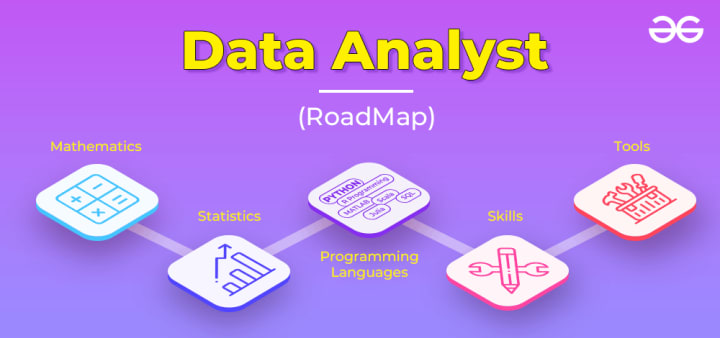Data analyst, data engineers and data scientists: what are the differences
Get to know the main differences between the highest paying jobs in 2023

What is a Data Analyst?
A data analyst's primary job is to help organizations make data-driven decisions. This often leads to the development of data models, visualizations, dashboards and reports. To this end, analysts must perform processes of data collection, data integration, data analysis, data presentation and data utilization.
As organizations grow in complexity and size, analysts may specialize in particular areas and report to specific business areas. At the same time, there may be a central team of data analysts who directly serve the needs of the organization's executives.
The eight most important skills for data analysts are:
- Data cleansing and preparation
- Data analysis and exploration
- statistical knowledge
- Create data visualizations
- Create dashboards and reports
- writing and communication
- Expertise
- problem solving
And here's a description of the most relevant onse
1: Data Cleaning and Preparation
Research shows that data cleansing and preparation takes up about 80% of the work of most data professionals. So this skill is important. Data analysts typically need to acquire data from one or more sources and prepare it for numerical and categorical analysis. Data cleansing also includes dealing with missing or inconsistent data that can affect your analysis. Data cleansing is not always fun in data analysis, but data preparation can be both fun and rewarding if you think of it as a problem-solving exercise.
2: Data Analysis and Exploration
It may be strange to write "data analysis" as an essential skill for data analysts, but analysis as a specific skill is necessary. At its core, data analysis is taking a business question or need and analyzing relevant data to derive an answer to that question. Another form of data analysis is exploration. Data exploration is looking for interesting trends and relationships in data that can add value to your business.Business questions can guide your research, but they can also be relatively unguided. Looking for patterns in your data can reveal opportunities to reduce costs or accelerate growth for your company.

What is a Data Engineer?
As organizations become more data-driven, they need to establish a solid foundation and systems approach to data collection, analysis, and modeling.
A data engineer's primary job is to build and maintain data pipelines that ingest data from external sources and move it to repositories such as data stacks and data lakes. This includes building pipelines to production applications and transferring machine learning models created by data scientists into production. Moving data using the Extract, Load, Transform (ELT) process starts with raw data, data that has not yet been processed or organized. This process is typically extracted, loaded, and transformed.
What is a data scientist?
Data scientists use analytics and reporting tools to identify and extract meaningful insights from large amounts of data. Unlike analysts, data scientists can also build predictive models based on historical data or prototype automated systems based on data. Their work enables businesses to take advantage of artificial intelligence (AI) and machine learning (ML).
More advanced data science can include sophisticated products that incorporate artificially intelligent agents, recommendations, automated decision-making, etc.
Hire data analysts, data engineers and data scientists

The foundation of robust data operations is hiring analysts and equipping them with a modern data stack consisting of data pipelines, cloud data warehouses, transformation tools, and business intelligence platforms. These elements enable teams to generate regular reports, provide dashboards to business units and departments within the organization, and facilitate data democratization and evolution.
As your company's data operations grow, it's a good idea to hire a data engineer to design a robust data architecture by creating custom processes you can't buy off-the-shelf.
Finally, be prepared to hire data scientists to research and prototype innovative uses of artificial intelligence and machine learning based on the data your organization creates and collects.





Comments
There are no comments for this story
Be the first to respond and start the conversation.